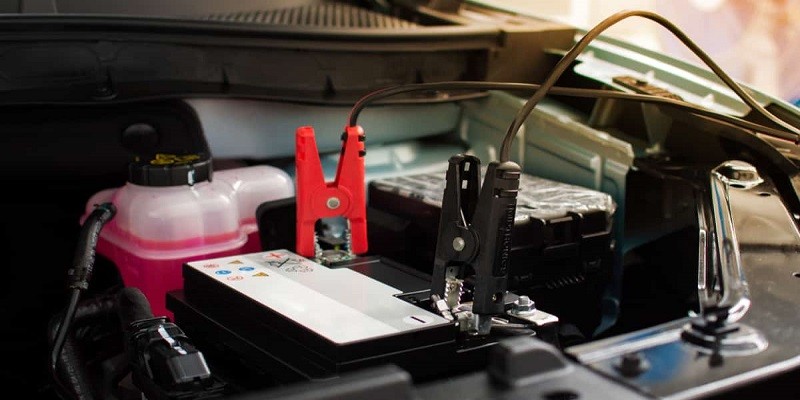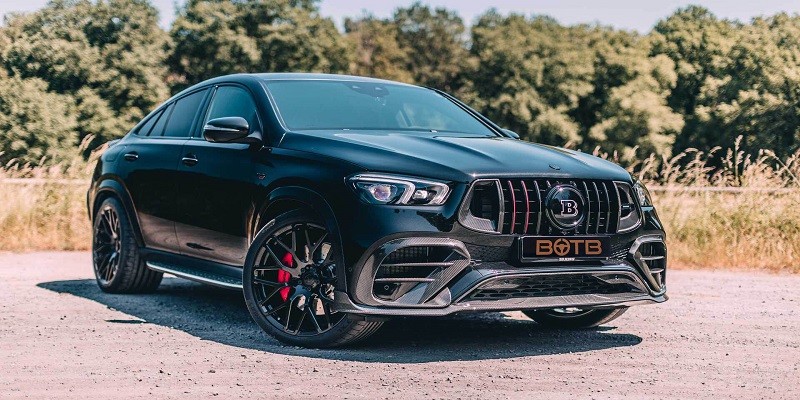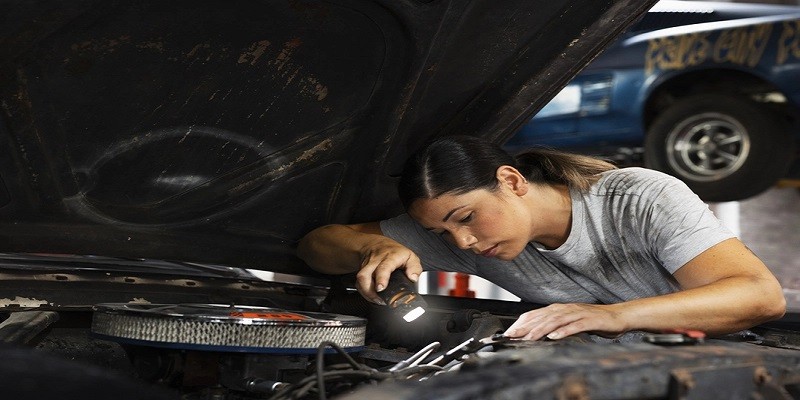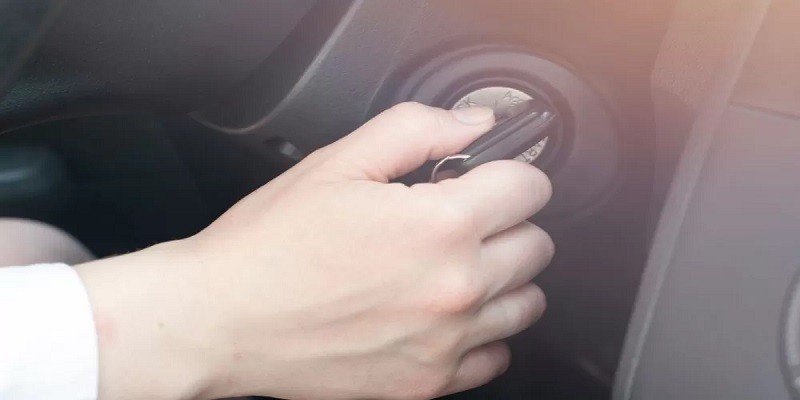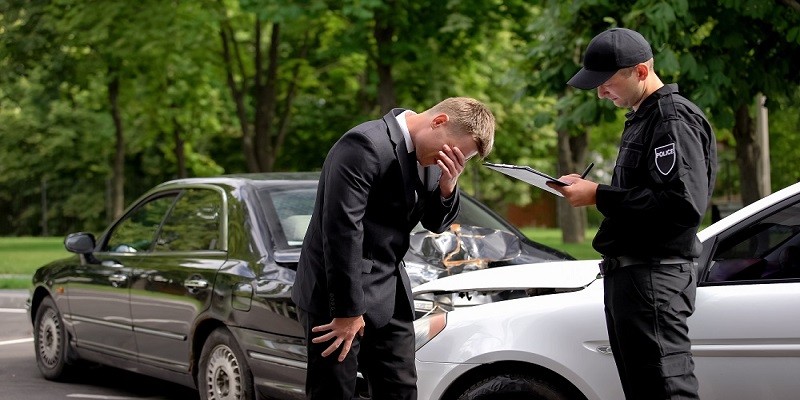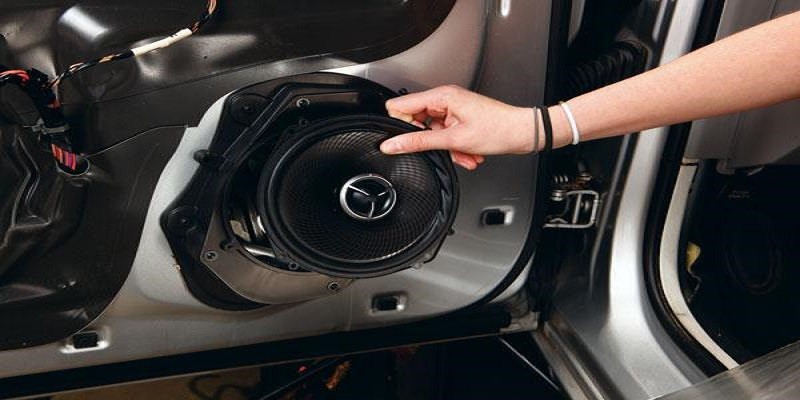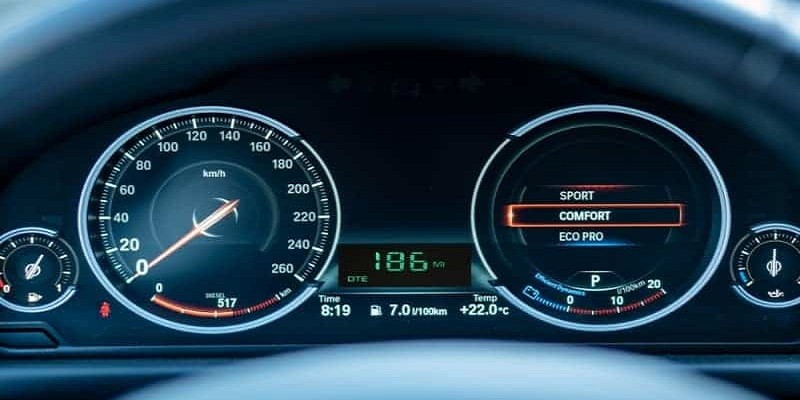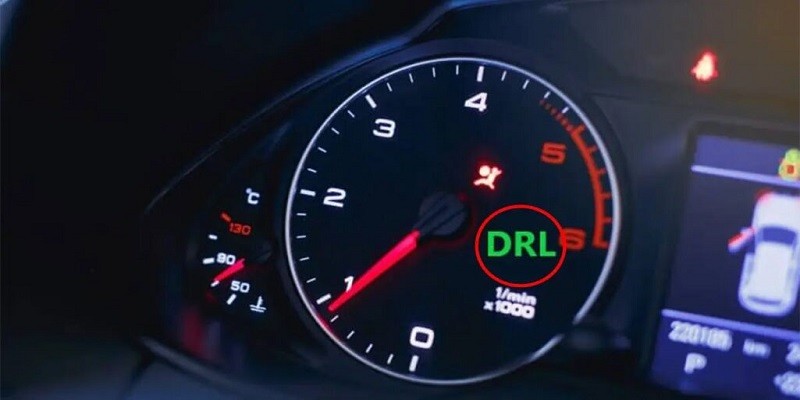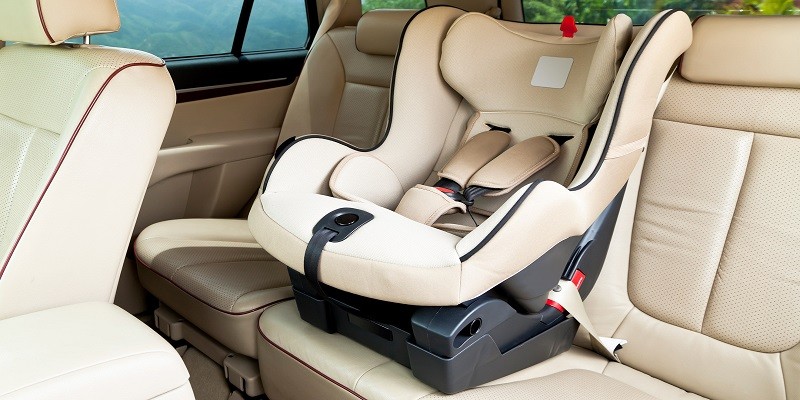A car battery typically takes four to twelve hours to charge fully. Factors such as the type of charger, the condition of the battery, and the capacity of the battery can affect the duration.
If you own a car, you might be wondering how long it takes to charge a car battery, particularly if you have a dead battery. It’s crucial to know the charging time of your car battery to ensure that it is working correctly. Factors such as the condition of the battery, the type of charger, and the battery’s capacity can affect the charging time. In this article, we will talk about the different factors that can influence how long it takes for a car battery to charge and examine the battery charging techniques that will allow your battery to perform at its best.

Credit: www.jdpower.com
Factors That Affect Car Battery Charging Time
How long to charge car battery? – factors that affect car battery charging time everyone who owns a car is aware of the importance of a fully charged car battery for a smooth running vehicle. however, the question that many people ask is, “how long does it take to charge a car battery?” the answer is not that simple, as several factors can affect the battery charging time. let’s dive into the most important factors that affect car battery charging time.
Temperature
The temperature of the environment and the battery itself is a crucial factor that affects the charging time of a car battery. the chemical reactions that take place within the battery depend on temperature. the optimal charging temperature for a car battery is between 50°f and 85°f. if the temperature is too high, the battery will overheat and reduce the charging capacity. conversely, if the temperature is too low, the battery will not charge completely.
Battery Type
The type of battery used in a car also greatly affects the charging time. some batteries are designed to charge more quickly than others. the most common types of batteries are lead-acid, absorbent glass mat (agm), and lithium-ion. agm and lithium-ion batteries can charge faster than lead-acid batteries.
The Extent Of Discharge
The degree of discharge of your car battery can affect the amount of time it takes to charge it fully. if the battery is partially discharged, it will take less time to charge than if it were nearly dead. however, if the battery is completely dead, it may need to be trickle charged to bring it back to a minimal voltage before a standard charging process can begin.
Charging Method
The charging method used also affects how long it takes to charge a car battery. there are three primary charging methods: trickle charging, standard charging, and fast charging. trickle charging is the slowest method, but it is ideal for maintaining a full charge over a long period of time. standard charging is the most common method, and it can take up to 24 hours to fully charge a battery. fast charging is the quickest method, but it should be used sparingly, as it can cause damage to the battery if used frequently.
Battery Condition
The condition of the battery itself can also affect the charging time. if the battery is old or damaged, it may take longer to charge, or it may not hold a charge at all. in some cases, a damaged battery may need to be replaced. charging time for a car battery depends on several factors, such as temperature, battery type, degree of discharge, charging method and battery condition. by understanding these factors, car owners can determine the appropriate charging time for their battery, which is essential for keeping the car running smoothly.
Simple Steps To Charge A Car Battery
Car batteries are an essential part of a vehicle’s functionality. they provide electrical energy to start the engine and keep the car running. however, car batteries can sometimes be impacted by external factors such as weather or long periods of inactivity that can drain their power over time. knowing how to charge a car battery properly is therefore an essential skill that every car owner should acquire. in this blog post, we will guide you on how to charge a car battery safely and effectively in just a few simple steps.
Safety Precautions
Before beginning the charging process, it is crucial to take the following safety measures:
- Wear protective eyewear and gloves to avoid being exposed to any acid or voltage leaks
- Make sure the charger and battery are both turned off before connecting any cables
- Keep the battery away from any flammable liquids or materials
- Always follow the manufacturer’s instructions and warning signs
Preparing The Battery For Charging
Once you have taken the necessary safety precautions, it is time to prepare the battery for charging:
- Check the battery’s voltage levels. most car batteries have 12 volts, but some may have 6 or 24 volts, so be sure to verify the voltage before proceeding.
- Inspect the battery for any cracks or leaks. if you notice any, do not attempt to charge the battery and replace it instead.
- Remove the battery cables. make sure you know which is the positive and negative terminal before disconnecting them. on most cars, the positive terminal will be red, and the negative terminal will be black.
Choosing A Charging Method
There are two main ways to charge a car battery – using a trickle charger or a fast charger. here’s what you need to know when deciding:
- Trickle charger: slow and gradual charge. right for batteries with less than 12 amps capacity. charging takes at least 24 hours.
- Fast charger: quick and efficient charge. ideal for batteries with more than 20 amps. charging usually takes only a few hours.
Connecting The Charger To The Battery
Once you’ve selected your charging method, it’s time to connect the charger to the battery. here’s how:
- Connect the charger to the positive terminal first, then to the negative terminal. this prevents any spark that might occur if you do it in reverse order.
- Ensure the charger is turned off before plugging it into the electrical socket.
- Double-check all connections before turning on the charger.
Monitoring The Charging Process
While the battery is charging, it is essential to monitor it continuously to see when it needs to be disconnected. here’s what you need to do:
- Keep an eye on the battery charger’s voltage and amp reading if available.
- Check the charger and battery temperature frequently.
- Do not entirely drain the battery; disconnect it when it is charged up to 80%.
Disconnecting The Battery When Fully Charged
Once the battery is fully charged, it’s time to disconnect it. here’s how:
- Turn off the charger and then unplug it from the socket
- Remove the charger’s cables from the battery, making sure you first disconnect the negative cable and then the positive cable.
- Place the battery back into the car and reconnect the positive cable, followed by the negative cable.
By following these simple steps, you’ll be able to charge your car battery safely and effectively. remember always to take the necessary safety measures and to choose the appropriate charging method based on your battery’s needs. splitting the process into specific steps and monitoring each stage will help prevent any potential accidents and ensure that your battery stays in top condition.
Different Charging Methods To Charge A Car Battery
Car batteries play an essential role in the smooth functioning of vehicles. however, when the battery goes dead, charging it is necessary to power up your vehicle. here are different charging methods to charge a car battery.
Home Charger
A home charger is the most commonly used method to charge a car battery. it is convenient and easily accessible as it is available at home and requires minimal effort to use. here are a few important points to keep in mind when charging your car battery at home using a home charger:
- Ensure the voltage of the battery charger matches the car battery’s voltage rating.
- Connect the red cable to the positive terminal of the battery and the black cable to the negative battery terminal.
- Charge the battery till it reaches its full capacity.
- Disconnect the charger from the battery once it’s fully charged.
Trickle Charger
A trickle charger is another method to charge a car battery. it charges a battery at a slow pace and is ideal for those who have ample time to spare. here are some key points to keep in mind when using a trickle charger:
- Connect the trickle charger to the battery and plug it into the power outlet.
- Wait for the charger to charge the battery. this process may time take several hours or even days.
- Check the battery level regularly to ensure that it does not overcharge.
Jump Start Charger
A jump start charger is a method of emergency charging when the battery is completely dead. here are some key points to keep in mind when using a jump start charger:
- Connect the red clamp of the charger to the positive terminal of the dead battery and the black clamp to the negative terminal.
- Start the vehicle to provide a boost of power to the dead battery.
- Once the vehicle starts, disconnect the charger clamps and let the engine run for a few minutes.
Portable Charger
A portable charger is another method of charging a car battery that is ideal for travelers or individuals without access to a power source. here are some key points to keep in mind when using a portable charger:
- Choose a portable charger with the same voltage as the car battery.
- Connect the charger to the car battery terminals and let it charge till the battery reaches full capacity.
- Disconnect the charger once the battery is fully charged.
Charging your car battery is essential to keep your vehicle running smoothly. it is crucial to understand the different charging methods and choose the method that is most suitable for you. by following the simple steps and key points mentioned above, you can ensure your car battery is appropriately charged and maintained.
Charging Time For Different Car Battery Types
Car batteries can hold an enormous amount of charge, illuminating the headlights, playing music, and running the air conditioning. but, what happens when your car battery dies? recharging your car battery is critical, but how long should it take? in this section, we will discuss the charging time for different car battery types, including conventional lead-acid battery, absorbent glass mat (agm) battery, and lithium-ion battery, so you can ensure your car battery is charged and ready to go.
Conventional Lead-Acid Battery
Lead-acid batteries have been around for over 150 years and are one of the most common types of batteries found in vehicles today. here are some key points about charging time for conventional lead-acid batteries:
- The charging time for conventional lead-acid batteries is typically between 4-6 hours.
- A completely drained battery may take up to 24 hours to recharge fully.
- Overcharging can cause the battery to be less efficient and shorten the battery’s lifespan.
- The charging time will depend on the battery’s size.
Absorbent Glass Mat (Agm) Battery
Agm batteries are becoming more popular as they are maintenance-free and can have a longer lifespan than lead-acid batteries. here are some key points about charging time for agm batteries:
- Agm batteries can be charged faster than lead-acid batteries. they typically take between 1-4 hours, depending on the battery’s size.
- Overcharging can cause the battery to be less efficient and shorten the battery’s lifespan.
- Agm batteries can be left on a trickle charger for a more extended period without damaging the battery.
Lithium-Ion Battery
Lithium-ion batteries are the newest edition to electric cars and are also being used in traditional gasoline-powered cars. here are some key points about charging time for lithium-ion batteries:
- Lithium-ion batteries can be charged extremely quickly. they typically take between 30 minutes to 2 hours, depending on the battery’s size.
- Overcharging can cause the battery to be less efficient and shorten the battery’s lifespan.
- Lithium-ion batteries are very expensive to replace, so it’s crucial to ensure you do not overcharge the battery.
The charging time for car batteries can vary depending on the battery type. regardless of the battery type, it’s crucial to avoid overcharging the battery. by charging the battery correctly, you can ensure your car is running smoothly and ready to go when you need it to.
Signs That Your Car Battery Needs Charging
Is your car battery on the brink of failure? like most essential components of your car, the battery is subject to wear and tear over time. therefore, it is crucial to know when it needs charging. here are some telltale signs that indicate your car battery needs charging:
Dim Lights Or No Lights At All
If you start your car, and the headlights are dim or do not turn on, it’s a sign that the battery is weak and needs to be charged. in some cases, you might notice dimmer interior lights, dashboard lights, or other electrical components.
Engine Cranking Slowly
Your car’s engine cranking slowly or taking a long time to start is also a sign that your battery is not in good shape. when your battery’s voltage drops, it cannot produce enough power to the starter motor. if you hear your engine cranking slowly when you try to start your car, it means that your battery’s charge has deteriorated, and you need to charge it.
The Battery Warning Light Is On
Your car’s battery warning light indicates that there is an electrical problem. it usually means that the battery isn’t charging correctly. if you see this warning light on your dashboard, it’s essential to have your battery checked as soon as possible.
Unusual Smell Or Sound When The Engine Is Running
If you notice a strange smell or sound when you are driving your car, it could be an indication that there is a problem with your battery. a rotten egg-like odor coming from the engine compartment is usually a sign of a dead battery, while a clicking sound when you turn the key in the ignition means that your battery is not producing enough current or is failing. being aware of these signs that your car battery needs charging can help you avoid being stranded on the road. make sure to conduct regular maintenance checks, including monitoring your battery’s health. in case of any doubt, don’t hesitate to seek professional advice.
Conclusion
In summary, charging a car battery depends on factors such as the size of the battery and the type of charger used. It is crucial to maintain the right charging voltage and not overcharge or undercharge the battery to avoid damaging it. Keeping the battery clean and conducting regular maintenance checks can extend its lifespan and save you money in the long run. Understanding when to replace a battery is essential to prevent being stranded with a dead battery. By following a few simple steps, you can ensure your battery stays healthy and functions optimally. Investing in a reliable battery charger and following the manufacturer’s instructions can save you time, money, and headaches down the road. So, always be vigilant and take care of your car battery, as it is the heart of your vehicle’s electronics and performance.
Frequently Asked Questions Of How Long To Charge Car Battery?
How Long Does It Take To Charge A Car Battery?
The time it takes to charge a car battery depends on its capacity and the amperage of the charger. on average, it can take 4 to 24 hours to charge a car battery fully.
Can Overcharging My Car Battery Damage It?
Yes. overcharging your car battery can cause damage to the battery’s internal components, which can lead to reduced battery life and performance. so, make sure not to overcharge your battery.
How Often Should I Charge My Car Battery?
If you tend to use your car often and travel long distances, then your battery should charge while your car is running. however, if you don’t use your vehicle frequently, you may need to consider charging your battery at least once a month.
Can I Charge My Car Battery With The Engine Running?
It’s not recommended to charge your car battery while the engine is running, as it can cause damage to the alternator and other electrical components. always turn off the engine while charging your car battery.

